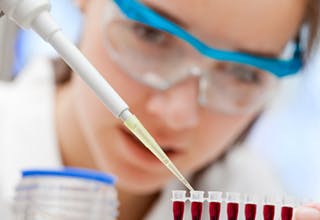Aerobic Exercise and Plasma Catalase Activity

Researchers
Dr Pat James, Head of Department of Health Sciences
Background
This study, supported by Faculty of Health Pilot Research funding, was carried out by Dr Pat James over the course of one year. It sought to better understand the role of highly reactive 'free radical' molecules in the body's metabolism by studying plasma catalase activity - the process by which these molecules are converted into water and oxygen.
Aim of research
This project aimed to:
- Study changes in plasma catalase activity following a period of moderate aerobic exersize
- Relate this to potential changes in the concentration of free radicals.
Method of research
Between 10 and 20 student volunteers were recruited from the Health and Wellbeing programme in order to measure their plasma catalase activity at various points throughout and around a period of exercise. Blood samples were taken immediately before and after exercise, and at longer intervals in the 48 hours following this period.
Outcomes
The initial findings demonstrated a reduction in plasma catalase activity in four of the volunteers after exercise. The fall in activity ranged from 67 percent to 13 percent of the original enzyme activity remaining 48 hours after exercise. This is a significant fall in antioxidant activity and at the cellular level might well lead to an increase in the concentration of free radicals.
Applications
The findings of the research imply an increase in the concentration of free radicals after exercise. Moderate aerobic exercise requires extra energy production and hence an increase in oxidation and the production of free radicals. For many years scientists assumed that exercise was beneficial for the health despite its link to the production of free radicals, not because of it. However, some studies have shown (Ristow, 2009) that radical production increases during exercise and actually induced the action of genes involved in DNA and cellular repair mechanisms, hence their beneficial role. James' research supports this view of free radicals.
Findings were presented at the Faculty Research Conference.
This study sought to better understand the role of highly reactive 'free radical' molecules in the body's metabolism by studying plasma catalase activity - the process by which these molecules are converted into water and oxygen.